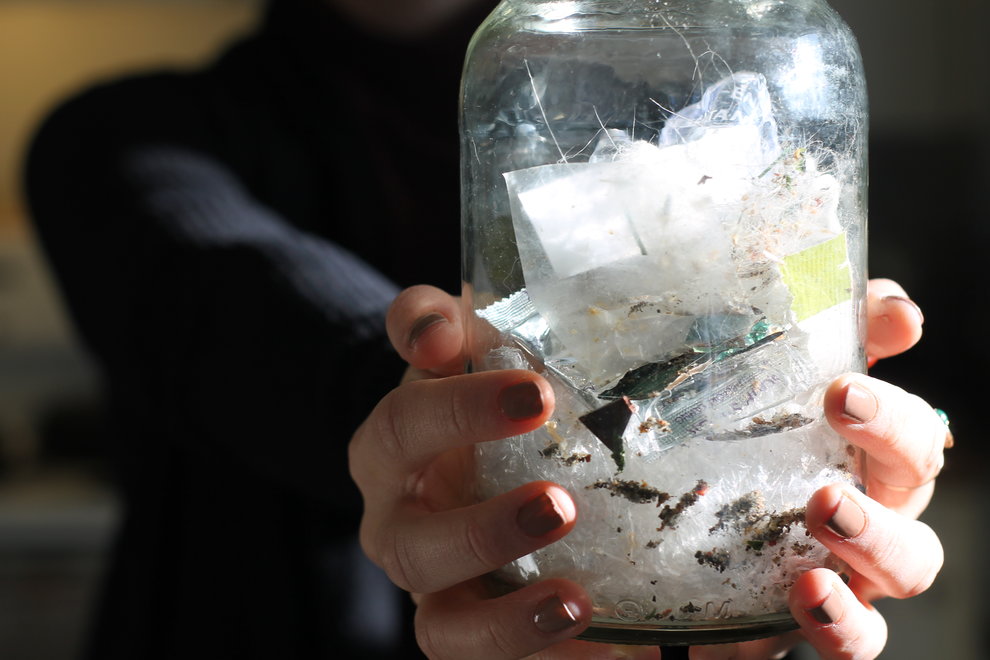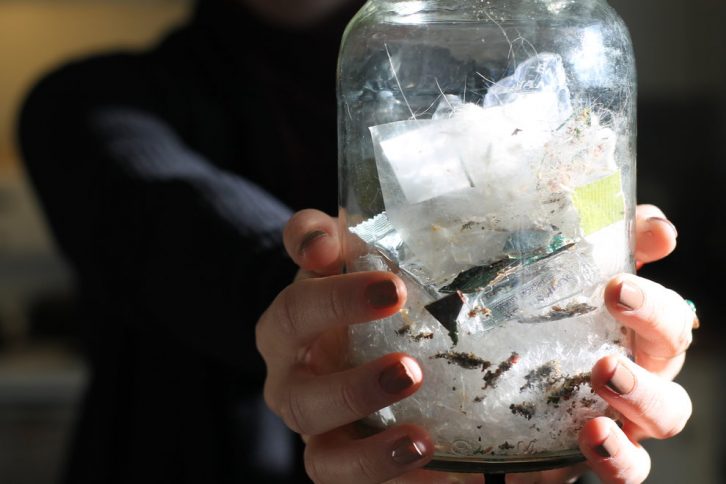Zero Waste
Junk in a jar
Halifax is producing a little less litter

caption
Could you fit a year's worth of waste into this jar?
caption
Could you fit a year’s worth of waste into this jar?Imagine fitting a year’s worth of garbage into one small jar.
For Mira Chiasson, it’s a box.
The University of King’s College journalism student is following a zero waste lifestyle. Zero waste a growing movement that promotes producing next to no waste, with many people striving to fit a year’s worth into a jar. Chiasson, 24, is half way through an eight-month challenge to confine her school year waste to one cardboard box.
“It was kind of a New Year’s resolution with the New Year being in September,” she says.
According to Statistics Canada, Nova Scotia produced 364,193 tonnes of waste in 2014. This makes the province the lowest ranked one in the country, but Chiasson wants that number to be lower.
In 2015, Chiasson lived and worked off-grid, spending a year away from consumer society. She wanted to keep up her waste minimal once she returned.
“When your garbage leaves your home every week it’s hard to have an idea of the real quantity of waste you produce over a year,” she says.
To avoid an unpleasant odor, Chiasson washes each piece of litter before it goes into her box. Other than that, she finds the process is easy. She makes her own food, shops for package-free items at the farmer’s market and reuses glass jars for storage.
“Nowadays there are all kinds of neat things popping up that are part of what you could call a sharing economy, based around borrowing rather than buying, or buying second-hand,” she says.
But even in the sharing economy, some things are tough to borrow, like cat food or laundry soap.
That’s where Caira Clark comes in.
Clark is the founder of Unpacked Halifax, a zero waste pop-up shop opening in May that is the first of its kind in the Maritimes.
“I think the hardest things to reduce are shampoos and conditioners,” says Clark. “They’re things you can make, but you have to buy other packaged things to make them.”
Unpacked Halifax will sell dried food products such as flour, beans and nuts, as well as laundry detergent, shampoo and dish soap. They will also have cloth bags and bottles on site for people who want to get started on reducing waste.
For longtime reducers, like Ellen Crumley, Unpacked Halifax is welcome news.
A professor at Dalhousie University’s Rowe School of Business, Crumley has been reducing her waste for 15 years.
“Ten years ago I sent a letter to Bulk Barn asking them to consider letting people bring their own containers,” she says. “They told me no. Now, look how things have changed. People in general are concerned about the environment and I believe this is going to grow, but we will need to give up some conveniences.”
Crumley says the hardest part is when she actually does have to throw garbage and packaging away.
“I feel extremely guilty that I am contributing to the landfill,” she says.
Crumley’s goal, like most zero-waster’s, is to get down to one jar a year. Right now, she’s down to one brown lunch bag a week.
For those who want to make 2017 a less trashy one, Crumley suggests using reusable bags to start — even for produce — and buying non-processed foods.
“I want to try and leave the world better than when I was here,” she says.

